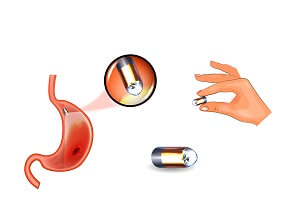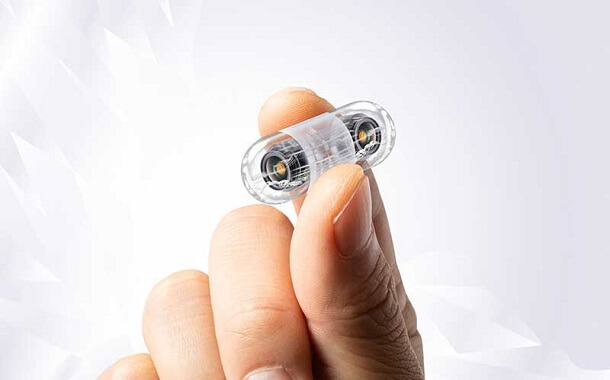Video Capsule Endoscopy Cost
Last Updated on December 29, 2023
Written by CPA Alec Pow | Content Reviewed by ![]() CFA Alexander Popinker
CFA Alexander Popinker
Video capsule endoscopy is a modern, minimally invasive technique that performs the examination of the digestive tract with the help of a small device that, once swallowed by the patient, travels through the digestive tract and takes photographic images of it. The major indication is the investigation of diseases of the small intestine, a segment that is not accessible to classical endoscopy. It is recommended in the investigation of digestive hemorrhages, inflammatory bowel diseases, tumors of the small intestine, etc.
It is a relatively expensive method and does not allow the performance of implicit maneuvers of classic endoscopy such as biopsy sampling, hemostasis, extirpation of polyps, and others.
How Much Does a Video Capsule Endoscopy Cost?
The cost of a video capsule endoscopy is affected by several factors such as the complexity of the job, the doctor who performs the procedure, your geographical location, and any needed inclusions.
Without insurance, you will have to pay anywhere between $950 and $3,000 for a capsule endoscopy. Only the capsule costs anywhere between $650 and $1,500.
According to the National Center for Biotechnology Information, the cost of an inpatient capsule endoscopy is around $2,100.
Capsule endoscopy overview
 The endoscopic capsule is one of the newest and most modern methods of investigating the digestive tract. It is equipped with a tiny video camera (or 2 cameras – in the case of the colon one) that records images from the digestive tract, a lighting source, and a source of electric current (battery). The camera is embedded in a capsule the size of a vitamin tablet (about 26 mm in diameter and 3-4 grams in weight), which is swallowed with water, like any other medicine.
The endoscopic capsule is one of the newest and most modern methods of investigating the digestive tract. It is equipped with a tiny video camera (or 2 cameras – in the case of the colon one) that records images from the digestive tract, a lighting source, and a source of electric current (battery). The camera is embedded in a capsule the size of a vitamin tablet (about 26 mm in diameter and 3-4 grams in weight), which is swallowed with water, like any other medicine.
After being swallowed, it passes below the stomach in about half an hour, and through the entire small intestine in about 4-5 hours, being then eliminated in the stool. While the capsule travels through the digestive tract, the camera records thousands of images (2-4 images per second) which are then transmitted to sensors attached to the patient’s abdomen, connected to a device for storing these images that the patient carries on his body, tied with a belt around the waist.
It films the contents of the esophagus, stomach, small intestine, and colon, for a duration of 8-10 hours (as long as the battery lasts).
After the recording of images is finished, the stored images are retrieved with the help of specialized software on a computer. Only after that, the most important contribution of the specialist doctor actually begins – analyzing and interpreting the more than 8 hours of recording.
How to prepare for the procedure?
In order for the video capsule to capture clear images, so that it does not “miss” certain lesions, it is very important that the inside of the intestines is as clean as possible. For this reason, depending on the digestive segment examined, it is necessary to follow a certain regime.
As a rule, the patient should not eat anything solid for at least 12 hours before swallowing the video capsule to ensure that it will capture clear images of the intestinal mucosa. At the same time, the intestines must be “cleaned” with the help of some purgative solutions administered according to a well-established protocol the day before the investigation (and sometimes during the investigation, in the case of the colon).
You might also like our articles about the cost of a colonoscopy, HSG test, or chest x-ray.
On the day of the investigation, after swallowing the capsule, the patient will be allowed to drink liquids usually after 2 hours, and after 4 hours, he will be able to eat a light snack (but only as directed by the doctor).
What are the additional expenses?
During a video capsule endoscopy, the condition of a patient’s digestive tract will be evaluated. In case surgery or other types of procedures are needed, you will need to consider extra costs.
Important things to consider
Today, the video capsule is an extremely useful tool for detecting diseases such as digestive hemorrhages of unspecified cause, Crohn’s disease, refractory celiac disease, and some forms of intestinal polyposis, allowing direct visualization of the lining of the digestive tube.
In addition, the video capsule is used to diagnose colon cancer, but also polyps, diverticula, and inflammatory bowel diseases. Thus, with the help of the video capsule, patients can receive a diagnosis faster, and treatments can be started in a short time.
Video capsule endoscopy is a safe procedure with very few risks. Rarely, it can happen that the video capsule gets stuck in the digestive tract and does not get to examine the small intestine. According to the literature, this risk may be higher in people who suffer from Crohn’s disease or who have previously undergone surgery on the digestive tract.
What are the contraindications of video capsule investigation?
The capsule cannot be administered to patients with various swallowing disorders (who cannot swallow it), being for this reason contraindicated for small children. It is also contraindicated in people known or suspected to have strictures (narrowing) of the intestine or fistulas.
Tips for saving money
Actually, you can save money if you consider this procedure because this way a doctor will be able to say if surgery is required or if medicine would be enough to solve your problem.
Most probably this procedure is covered by your health insurance plan if it is deemed medically necessary. So, you should contact your health insurance company and ask about it.


Leave a Reply
Want to join the discussion?Feel free to contribute!